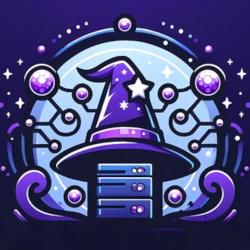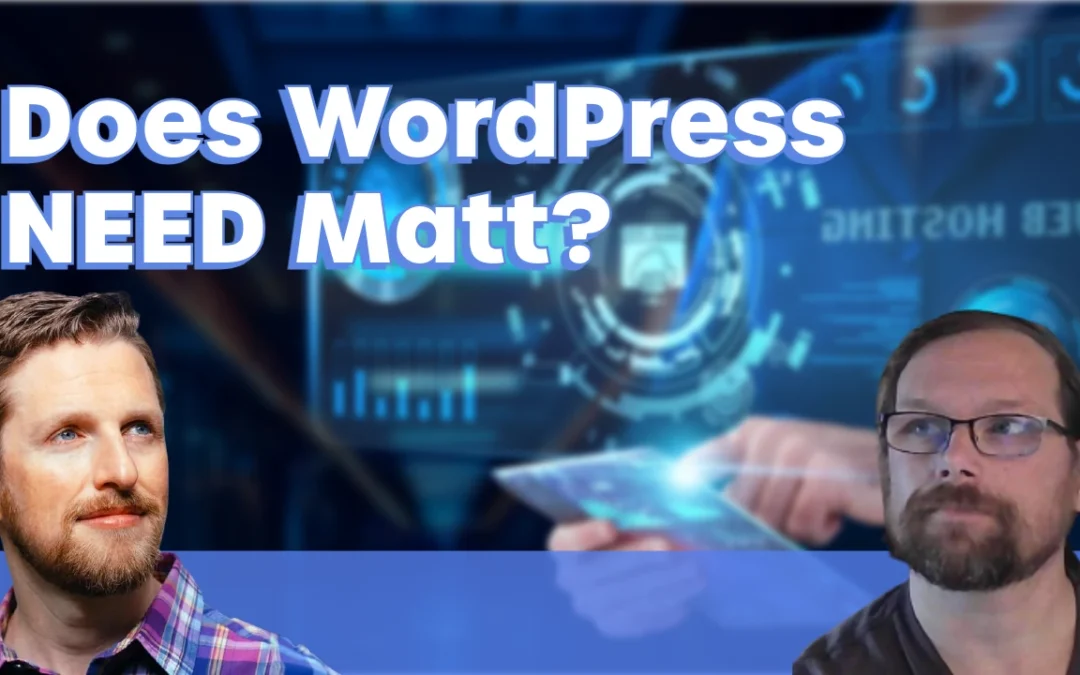Hey, everyone, Wolf here from Host Magi. Let me start this by saying that the views and opinions expressed in this article are my personal opinions. These views are mine alone and don’t reflect the views of Host Magi or my team as a whole. I get that sharing my thoughts might put me on the growing list of people banned from Automattic and WordPress contribution spaces. If that happens, it happens. I feel like I need to speak up.
Today, I want to talk about the ongoing conflict between Automattic/Matt Mullenweg and WP Engine. I’m not going to break down the entire situation—there’s already plenty of content out there if you want to dig into it. Instead, I’ll focus on my own perspective.
When this all started in September 2024, I decided to stay out of it. As someone who earns a living working with WordPress, I thought it was better to avoid getting directly involved. But as things have escalated, I feel like I can’t stay quiet anymore. I feel a responsibility to share my thoughts, even if it upsets people. So here we are.
When this situation first came to light, I mostly agreed with Matt. I felt WP Engine was violating the WordPress trademark and wasn’t contributing enough to the community. I still agree with some of that, but I’ve got a few concerns.
First, on the trademark issue: I’m no lawyer, but after nearly 20 years in the WordPress community, I have a pretty good understanding of how the WordPress trademark works. Back then in September 2024, I did think WP Engine was in violation. However, since then, they’ve made significant efforts to address this. If you compare their site from August 2024 to today (January 13, 2025), the trademark issues are gone. I wish they would’ve openly admitted their mistake, whether it was intentional or not, but credit where it’s due—they fixed it.
Now, let’s talk about contributions. I haven’t seen any solid evidence that WP Engine has increased their community contributions since then. Maybe they have, maybe they haven’t—it’s hard to say. But here’s the thing: no company is legally required to contribute under the GPL. The GPL doesn’t mandate participation in the community. Contributions are a voluntary decision, not an obligation. That said, I believe companies benefiting from open-source projects, especially to the extent WP Engine does, have a moral and ethical responsibility to give back in some way. That’s my opinion, though.
Where I start to disagree with Matt is how he’s handled this. Pushing for a “pay-to-play” model, where WP Engine must increase contributions—or else—is a clear violation of the GPL’s principles. The GPL doesn’t allow for that kind of requirement. I get encouraging companies to contribute, but trying to enforce it crosses a line. It’s not just wrong legally—it goes against the spirit of open source.
What’s frustrated me most is how far this has escalated. Matt, or Automattic (I’ll use the names interchangeably since they’re essentially one and the same to me), has crossed major lines. Recently, Automattic announced they would reduce their contributions to match WP Engine’s levels. They framed themselves as victims being bullied by WP Engine, which just isn’t accurate. Automattic has every right to reduce contributions—that’s their decision. But doing so while accusing WP Engine of not contributing enough is hypocritical. Automattic, as a key leader in this community, has a greater responsibility to set a positive example. They’re failing to do that here.
Another big issue is how they’ve been removing people from their community spaces. Several top contributors have been kicked out simply for suggesting the idea of a WordPress fork. The irony? Matt says he supports forks and the GPL’s freedoms. Yet, at the same time, he’s banning contributors who talk about those freedoms. Claiming it’s “for their benefit” is disingenuous. We all see what’s really happening—it’s about punishment, not encouragement.
What Matt and Automattic need to understand is this: the WordPress community doesn’t depend on them. WordPress has grown into the largest and most successful open-source software community because of the collective effort of individuals and companies—not just Automattic. While their contributions have been significant, the community is strong enough to thrive without them if necessary.
WordPress has succeeded because it’s an open, inclusive project that welcomes everyone. That’s what makes it great. But to suggest that we need Automattic or Matt to survive just isn’t true. We value their contributions, but this community isn’t dependent on any single person or company. WordPress is built on collaboration, and it will continue to grow because of the passion and dedication of the people involved.
I’m not trying to downplay Matt or Automattic’s role in WordPress’ success. Both statements are true: WordPress wouldn’t be where it is today without them, and WordPress wouldn’t be where it is without the broader community. It’s always been a collaborative effort. But when a relationship becomes this toxic, sometimes it’s time to reevaluate how things move forward. Whether that means a leadership change, a fork, or finding a middle ground, something needs to change.
This “take my toys and go home” attitude has got to stop. WordPress as a community will survive this drama. It might cause some short-term setbacks, but this project is too large, too diverse, and too strong to fail because of one conflict. The community’s core values of collaboration and openness will carry it forward.
In closing, I hope this issue gets resolved soon. I hope everyone involved can set aside their pride and refocus on what matters—preserving the spirit of the GPL and the WordPress community. Whether that means finding a compromise or making bigger changes, I believe this community will come out stronger. WordPress has always been about people coming together to build something incredible, and I hope we can get back to that. Thanks for listening.

